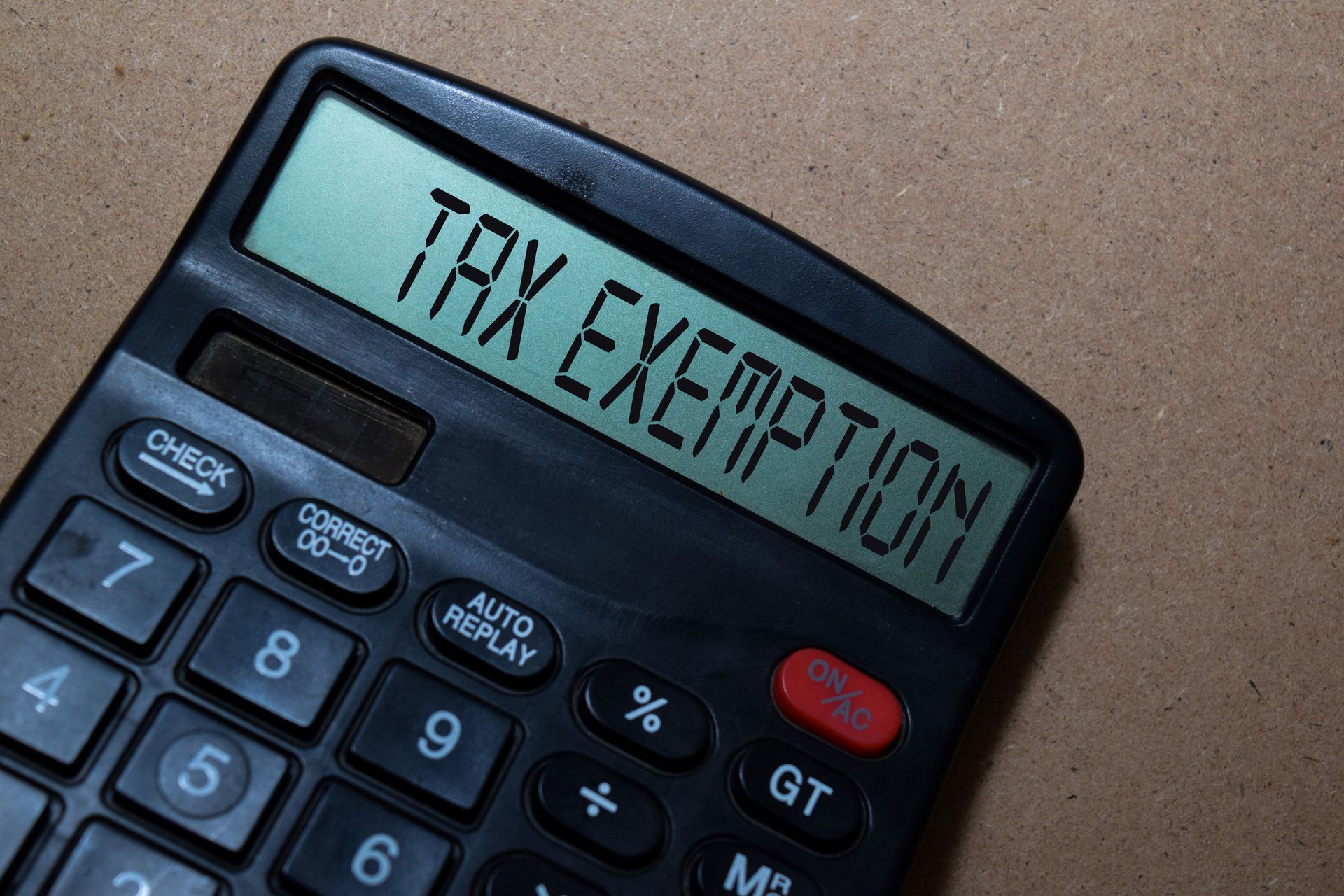Mastering Your Finances by Demystifying Tax Preparation and Planning
When it comes to taxes, many people feel overwhelmed and confused. It's no wonder - the world of taxes is complex and filled with jargon that can be difficult to understand. But one thing is clear: both tax preparation and tax planning are essential elements of financial health.
This blog post will guide you through the differences between tax preparation and tax planning, why each is crucial, and how you can master both to secure your financial future.
What is Tax Preparation?
Tax preparation refers to the process of preparing and filing your tax returns. This involves gathering your income statements, such as W-2s and 1099s, and compiling deductions, credits, and other pertinent information. Whether you do it yourself using tax software or hire a professional, the goal is to ensure your tax return is accurate and submitted on time.
The Basics of Tax Preparation
Understanding the basics can go a long way in alleviating the stress associated with tax season. Tax preparation requires meticulous documentation of your income and expenses. Forms like W-2s for employment income, 1099s for freelance work, and receipts for deductible expenses are all essential.
Common Tools for Streamlining the Process
There are several tools available to help streamline this process. Popular tax software like TurboTax and H&R Block offer user-friendly interfaces that guide you through each step. These platforms often include error-checking features that can help you avoid common mistakes.
The Role of Tax Professionals
While DIY tax preparation is possible, many people prefer to hire tax professionals. Accountants and tax preparers bring expertise and can help you identify
deductions and credits you might miss on your own. Their services can be especially beneficial for individuals with complex tax situations, such as small business owners or those with multiple income streams.
Understanding Tax Planning
Unlike tax preparation, which is reactive, tax planning is proactive. It involves strategizing throughout the year to optimize your financial situation and minimize tax liabilities. Effective tax planning can lead to significant savings and a more secure financial future.
The Importance of Year-Round Tax Planning
Tax planning isn’t something that should only happen as the tax deadline approaches. By considering your tax implications throughout the year, you can make informed decisions that reduce your tax burden. This might include contributing to retirement accounts, making charitable donations, or leveraging tax credits.
Key Strategies for Effective Tax Planning
There are several strategies for effective tax planning. One approach is income shifting, which involves timing your income and deductions to optimize your tax situation. Another strategy is tax-loss harvesting, where you sell investments at a loss to offset gains and lower your taxable income.
The Benefits of Professional Guidance
Just like with tax preparation, professional guidance can be invaluable for tax planning. Financial advisors and tax planners can offer tailored advice based on your individual financial situation. They can help you develop a comprehensive plan that maximizes your savings and ensures compliance with tax laws.
Differences Between Tax Preparation and Tax Planning
Understanding the primary differences between tax preparation and tax planning can help you better manage your finances. While both are essential, they serve different purposes and require distinct approaches.
Timing and Frequency
Tax preparation is typically a once-a-year activity focused on filing your tax return by the deadline. In contrast, tax planning is an ongoing process that requires attention throughout the year. Regularly reviewing and adjusting your financial strategies can yield substantial benefits.
Goals and Objectives
The main goal of tax preparation is to ensure your tax return is accurate and filed on time. On the other hand, tax planning aims to minimize your tax liability and maximize your financial health. By incorporating tax planning into your financial routine, you can avoid surprises and make informed decisions.
Tools and Techniques
The tools and techniques used for tax preparation and planning also differ. Tax preparation often involves tax software or professional services to compile and file your return. Tax planning, however, may require a broader range of tools, including financial planning software, investment accounts, and strategic advice from financial professionals.
Why Both Are Essential for Financial Health
Both tax preparation and tax planning play critical roles in achieving and maintaining financial health. Each serves a unique purpose, and together, they provide a comprehensive approach to managing your finances.
The Role of Accuracy in Tax Preparation
Accuracy in tax preparation is crucial to avoid penalties and audits. Ensuring your tax return is correct and complete can save you from future headaches and financial strain. The use of reliable tax software or professional services can significantly enhance the accuracy of your tax return.
Strategic Planning for Long-Term Savings
Tax planning enables you to take a strategic approach to your finances, resulting in long-term savings. By considering the tax implications of your financial decisions year-round, you can reduce your tax burden and keep more of your hard-earned money.
The Synergy of Combined Efforts
When tax preparation and planning are combined, they create a powerful synergy. Accurate tax preparation ensures compliance and avoids penalties, while proactive tax planning maximizes savings and financial growth. Together, they form a robust financial strategy that promotes stability and success.
How to Stay Informed About Tax Laws and Changes
Tax laws are constantly evolving, and staying informed is crucial for effective tax preparation and planning. Here are some ways to stay updated.
Follow Reputable Sources
Follow reputable sources such as the IRS website, financial news outlets, and professional organizations. These sources provide reliable and timely information about tax laws and changes.
Subscribe to Newsletters
Subscribing to newsletters from tax professionals and financial advisors can keep you informed about important updates. These newsletters often include valuable insights and tips for managing your taxes effectively.
Attend Workshops and Webinars
Workshops and webinars offer opportunities to learn from experts and deepen your understanding of tax laws. Many organizations offer these events, providing valuable education and networking opportunities.
Leveraging Technology for Tax Preparation and Planning
Technology plays a significant role in modern tax preparation and planning. Leveraging the right tools can enhance your efforts and streamline the process.
Tax Software and Apps
Tax software and apps provide user-friendly platforms for preparing and filing your tax return. These tools offer step-by-step guides, error-checking features, and support for various tax situations. Popular options include TurboTax, H&R Block, and TaxAct.
Financial Planning Tools
Financial planning tools can assist with tax planning by providing insights into your financial situation. Platforms like Mint, Personal Capital, and YNAB help you track expenses, plan budgets, and identify tax-saving opportunities.
Online Resources and Communities
Online resources and communities offer valuable support and information for tax preparation and planning. Websites, forums, and social media groups provide access to expert advice, peer experiences, and educational content.
Conclusion
Understanding the differences between tax preparation and tax planning is crucial for managing your finances effectively. Both are essential components of a comprehensive financial strategy, each serving unique purposes. By mastering both, you can minimize your tax burden, maximize savings, and achieve your financial goals.
Don't wait until tax season to start thinking about your taxes. Incorporate tax planning into your year-round financial routine, and seek professional guidance when needed. For more information and personalized advice, consider consulting with a tax professional or financial advisor.
Ready To Ease Your Tax Season Stress?
Are you looking for reliable
tax preparation services in Miami? Our expert team offers personalized support to help you maximize deductions and reduce stress during tax season. Contact us today to schedule a consultation and secure your financial future!
Call today for a free 15-min consultation

2024 © Sela Tax & Accounting



